Jayden Parkinson: Could she have been saved from Ben Blakeley?
- Published

Blakeley had been violent towards three other girlfriends before Jayden
The violent and abusive past of Ben Blakeley, who murdered his ex-girlfriend Jayden Parkinson and buried her in his uncle's grave, was revealed during his trial. But could anything have been done to save her?
When 17-year-old Jayden phoned her former boyfriend to tell him about her pregnancy his response was not what she had been hoping for.
He became abusive and accused her of being unfaithful. Yet she left the hostel where she was staying, One Foot Forward in Oxford, the day after that call on 3 December to meet him. She never returned.
Blakeley had a "controlling" and "obsessive" nature and had been reported to police previously for attacking other girlfriends.
In 2008, he had threatened to stab his pregnant former partner Kirsty Penford in the stomach and throw her down some stairs.
Police were also called after she gave birth to their baby because Blakeley had marched into the ward and begun wheeling the cot away with the baby inside.

The last sighting of Jayden was of her leaving Didcot Parkway station
Katie Gale, 21, who dated Blakeley from 2009 to 2012, told the trial how she feared for her life during one violent episode at his Didcot home, when he tried to strangle her.
She went to hospital after the alleged attack and reported it to police but did not make a formal complaint because she did not want to "get him into trouble".
Thames Valley Police has refused to comment on how it dealt with these reports, saying its hands are tied by an Independent Police Complaints Commission investigation into how it handled the report of Jayden's disappearance.
But would any of that knowledge have saved Jayden? Her friend Amy Lewis believes not.
"No matter what people could have said to her or done, she would never have listened because she loved him and [would do] anything he wanted," she says.
"Ben Blakeley was nothing but a bully and he was a vile person," Ms Lewis added.
"No-one ever cared to spend time with him. I only ever met him a few times but I never wanted to be in the same room as him because I just knew there was something about him I didn't like."
The national stalking advocacy service Paladin believes a register for domestic violence offenders and stalkers - similar to the sex offenders register - could have protected Jayden.
It is campaigning for reform of domestic violence law, external which it says does not cover controlling, domineering and demeaning behaviour by partners.

Grave discovery
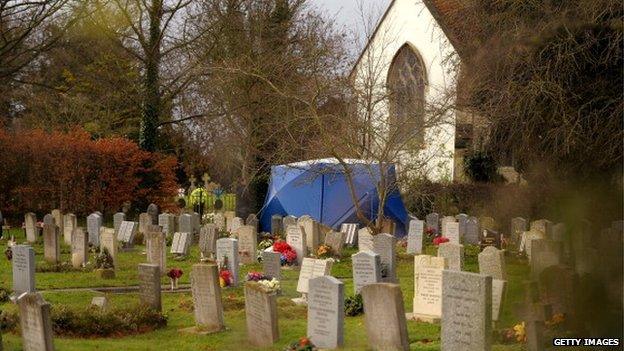
Jayden Parkinson was found in the grave of her killer's uncle last December
Police have said they know of no other British criminal case where an existing grave has been used to bury or hide a body.
Det Ch Supt Andrew Murray, from Thames Valley Police, said: "To try and hide that body in a pre-existing grave, well as far as we know, that's unique.
"As detectives we thought we had seen it all and could not be shocked or surprised but let me tell you we were as surprised and shocked as any member of the public was when her body was found in that grave."
The vicar at All Saints' Church in Didcot, the Reverend Karen Beck remembers when she was contacted by police who asked if she had noticed any disturbed graves, but she had not.
"I still cannot get my head round it," she said.
"The fact she was buried in an existing grave was very different from anything that I have certainly heard of before. And it was awful."


Jayden's disappearance prompted a huge police search
Paladin's founder Laura Richards said that although court cases like this one often mentioned defendants' violent pasts, those histories were often not known by their victims.
"[It] doesn't come out early on to protect Jayden and other victims," she said. "Ben Blakeley was a young guy who had abused so many victims."
Does she think a register could have saved Jayden? "Potentially," she adds.
She said a register would allow serial domestic abuse offenders, like Blakeley, to be monitored in a similar way to the sex offenders register, unlike Claire's Law, which allows women to access information.
The charity wants an order to be in place so offenders would have to notify police when they change their name, move, travel or form a new relationship, allowing the police to track them.
Jayden had left her mother's home in Didcot to live with relatives in northern England before travelling to Oxford and declaring herself homeless in the autumn of 2013. She was put up at the One Foot Forward hostel by Oxfordshire County Council.
Staff there described how the "timid" teenager had been too frightened to leave her room, having been forbidden by Blakeley to go anywhere else in the hostel, even to shower or use the toilet.
Jayden was forced to use a bottle if she needed the toilet and lived on a diet of junk food, the jury was told.
Despite the violence and intimidation she suffered, Jayden only reported Blakeley to the police after he threatened to post naked pictures of her online once they had split up.
He was arrested in Reading on 4 December on suspicion of possessing indecent images of her but was later released.
Earlier that day One Foot Forward staff had reported Jayden missing after she failed to return.
Her disappearance prompted a huge police search involving more than 100 officers and more than 20 possible crime scenes being identified.
Her body was finally found in the grave of Alan Kennedy, Blakeley's uncle, on 18 December, in Great Western Cemetery at All Saints' Church in Didcot.
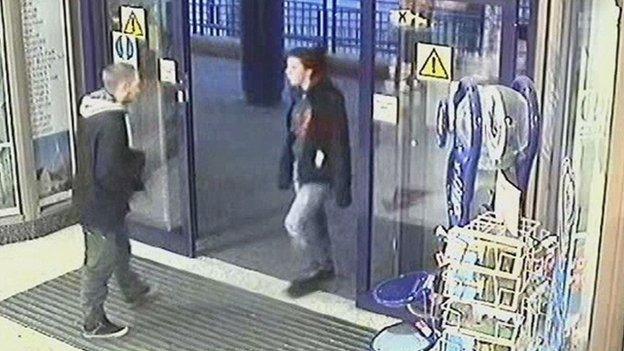
CCTV showed Blakeley and Jayden at Oxford railway station on 3 December
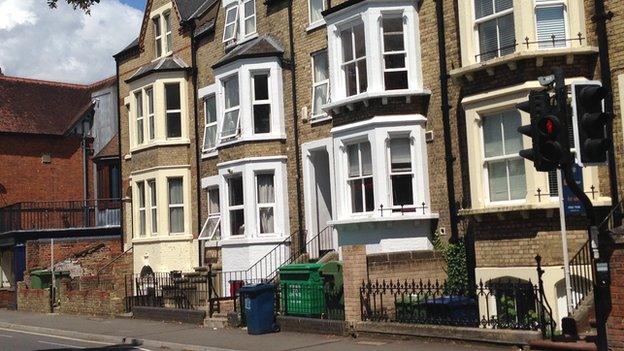
The hostel where Jayden spent the last month of her life
The Oxfordshire Safeguarding Children Board (OSCB) and representatives from the Oxford City and South Oxfordshire and Vale Community Safety Partnerships are combining a domestic homicide review and a serious case review into Jayden's death.
Both reviews automatically happen in cases where a child dies or has been seriously harmed in circumstances where abuse or neglect is known or suspected and is required by law.
The findings, which are due in 2015, may go some way to identifying ways to prevent vulnerable girls like Jayden from suffering the same fate.
"To me, Jayden was just a young girl who just wanted to be loved and she didn't have much and always tried to hold on to anyone that gave her attention," says her friend, Ms Lewis.
"She didn't deserve this, no-one does of course. She was a young innocent girl who didn't deserve to be treated the way she did."
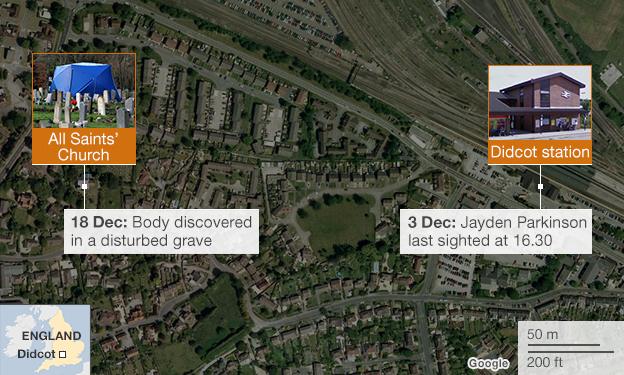
- Published24 July 2014
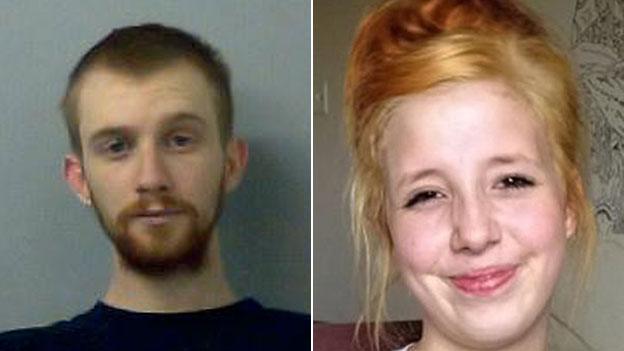
- Published15 July 2014
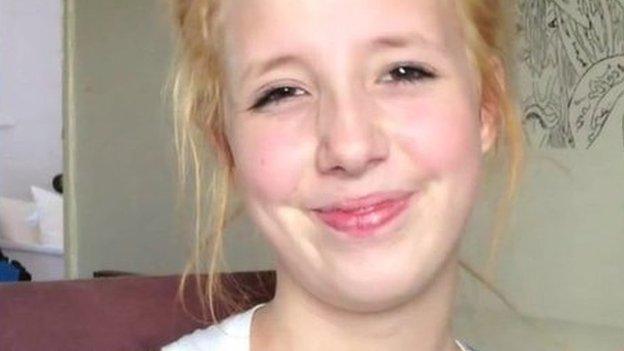
- Published14 July 2014

- Published11 July 2014

- Published10 July 2014

- Published9 July 2014

- Published4 July 2014

- Published3 July 2014
